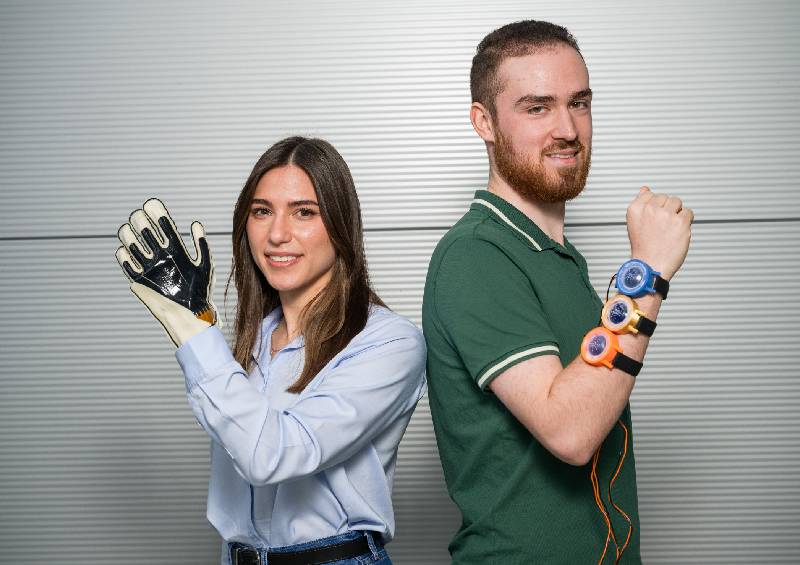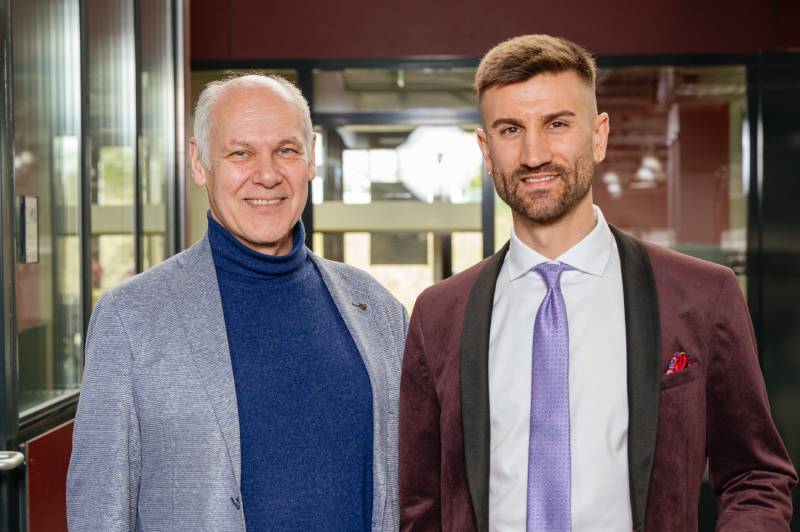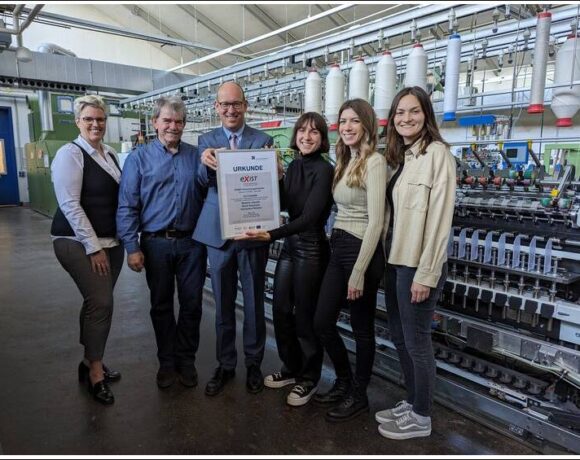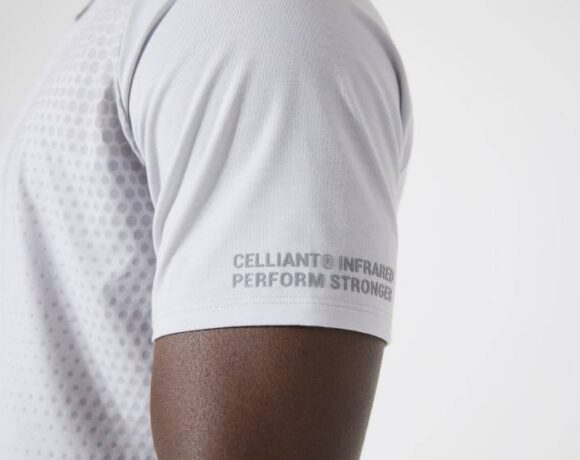Smart Textiles Bring Remote Hugs To Life With Virtual Skin Contact!

Advancements in smart textiles are transforming virtual reality experiences by introducing tactile sensations, allowing wearers to perceive physical touch remotely. A trail-blazing ultra-thin film capable of transmitting touch sensations effectively transforms textiles into a virtual second skin. For critically ill children in hospital isolation, this breakthrough technology offers the opportunity to feel the physical presence of their parents during computer-simulated visits, reinstating the comforting embrace and affectionate gestures they long for.
The profound impact of human touch on emotional well-being and connection cannot be overstated. A gentle touch can evoke feelings of comfort, security and bonding, triggering biochemical responses in the body. However, conventional video calls often fail to replicate this sense of closeness and emotional connection. In situations where physical proximity is crucial, such as when children are hospitalized and separated from their families due to health concerns, the absence of physical contact can be particularly distressing.
Addressing this critical need, an interdisciplinary research team comprising experts from Saarland University, HTW Saar University of Applied Sciences, Centre for Mechatronics and Automation Technology (ZeMA), and German Research Center for Artificial Intelligence (DFKI) is pioneering the development of technology to facilitate multi-sensory virtual encounters. The ‘Multi-Immerse’ project, at the nexus of engineering science, neurotechnology, medicine and computer science, aims to create immersive experiences that enable individuals to see, hear and feel the presence of their loved ones in a virtual environment.
Led by Professors Stefan Seelecke and Paul Motzki, the research team at Saarland University and ZeMA is focused on the tactile aspect of the project, striving to create technical systems that deliver authentic tactile feedback. Leveraging ultra-thin silicone films, measuring a mere 50 micrometers in thickness, the researchers have devised a mechanism to imbue textiles with tactile capabilities akin to human skin. These films, functioning as both sensors and actuators, enable wearers to experience tactile sensations when interacting with smart textiles.

(L-R) Prof. Dr. Stefan Seelecke and Prof. Dr. Paul Motzki.
Explaining the technology, Professor Seelecke highlighted the use of dielectric elastomers, which exhibit remarkable sensitivity to touch. These elastomers, equipped with flexible electrically conducting layers, undergo precise deformations in response to tactile input, mimicking the sensation of being touched. By integrating these smart films into textiles, the researchers enable children to experience comforting gestures from their parents, even in virtual settings.
At this year’s Hannover Messe, the team showcased its innovative technology through a demonstration featuring a “watch” embedded with a smart film. This technology, characterized by its affordability, lightweight design and energy efficiency, holds immense potential beyond healthcare applications. From enhancing gaming experiences to revolutionizing industrial processes, smart textiles equipped with elastomer-film technology offer a versatile solution for various sectors.
The research team’s endeavours feature the transformative power of technology in fostering human connection and alleviating the emotional burden of separation, particularly for vulnerable population groups such as hospitalized children. As the team continues to push the boundaries of innovation, the experts from Saarbrücken are poised to unveil a new era of immersive experiences and tactile interactions, paving the way for a future where distance no longer impedes closeness and compassion.















